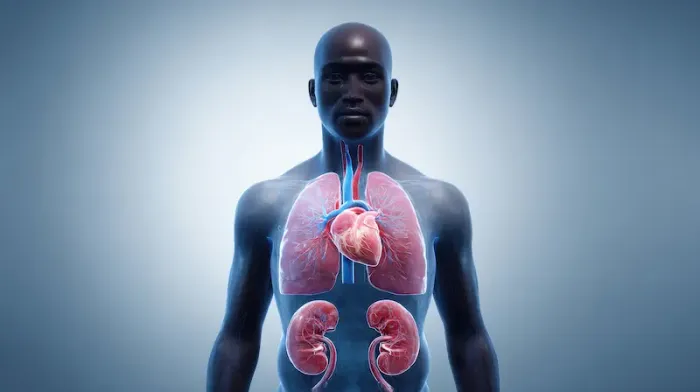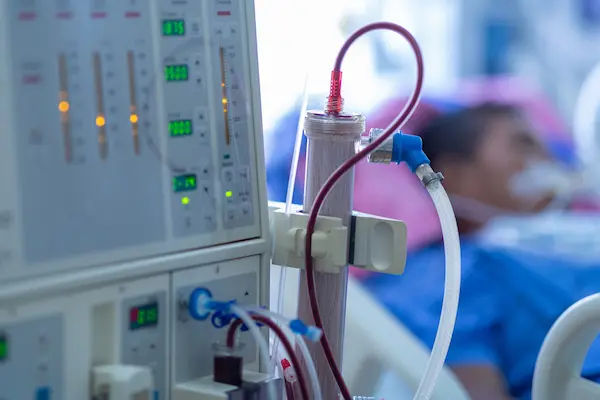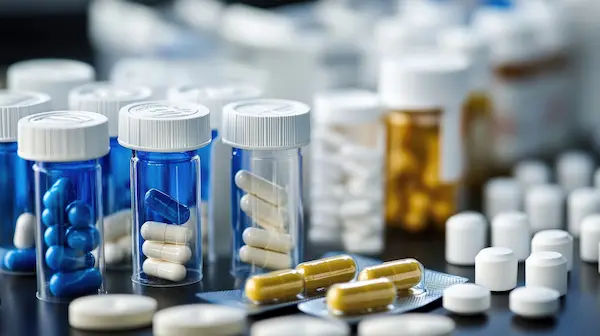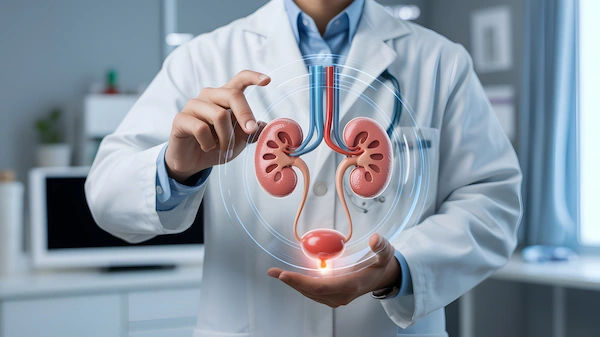Guide to Kidney Disease-Linked Gym Supplements
Know about the connection between kidney disease and supplements. Who is at risk, creatinine and kidney, role of anabolic steroids, herbals and more.


Introduction
If you lift, run, or train hard, your kidneys are quietly doing overtime—filtering waste, balancing fluids, and keeping your blood pressure in check. But could some gym supplements increase the risk of kidney disease or trigger kidney problems in the wrong circumstances? This guide cuts through the hype and fear to explain what the science actually says about creatine, protein powders, pre-workouts, anabolic steroids, herbal fat burners, and more. You’ll learn how kidneys are affected by training and supplements, who’s at higher risk, warning signs to watch for, the safest ways to use performance aids, and what to do if problems arise. Whether you’re new to the gym or a seasoned athlete, this article will help you make smarter, safer choices—without sacrificing results. We’ll also share actionable checklists, example “safer stacks,” and testing tips that fit real life.
Why your kidneys matter more than you think in the gym
Your kidneys don’t just filter waste; they also regulate electrolytes, acid-base balance, fluid volume, blood pressure, red blood cell production (via erythropoietin), and vitamin D activation. Training puts temporary demands on this system: metabolic byproducts rise, muscle breakdown increases nitrogenous waste, sweat losses concentrate the blood, and blood pressure fluctuates with effort. In healthy athletes, kidneys adapt well, but the margin for error narrows with dehydration, high heat, extreme intensity, or use of certain supplements and drugs.
Consult Top Nephrologist for Personalised Advice
Early signs of kidney stress are often subtle. You may notice darker urine despite normal intake, unusual muscle soreness, reduced exercise capacity, puffiness around the eyes or ankles, or elevated blood pressure. Foamy urine can signal protein in the urine; tea-coloured urine after a brutal session could reflect myoglobin from muscle breakdown. While an occasional tough session won’t cause disease, repeated hits without recovery, especially with stimulants or NSAIDs on board, can cause acute kidney injury (AKI). Over time, AKI episodes can stack up and increase chronic kidney disease risk.
How supplements can affect kidney function
There are three main routes by which gym supplements impact kidneys:
1. Hemodynamic stress: Stimulants (e.g., high-dose caffeine, synephrine, DMAA) can raise blood pressure and constrict blood vessels, including those in the kidneys, reducing filtration. Diuretics used for “cutting” can dehydrate and reduce blood flow.
2. Nephrotoxic exposure: Contaminated supplements (e.g., anabolic steroids mislabeled as “prohormones,” heavy metals, undeclared pharmaceuticals) and certain botanicals can directly injure kidney tissue.
3. Metabolic load: Very high protein intake increases nitrogenous waste and acid load. In healthy kidneys, this is tolerated; in CKD, it may accelerate decline. High-dose vitamins (D or C) can cause hypercalcemia or oxalate buildup, injuring kidneys.
Who’s most at risk?
1. People with known CKD, diabetes, hypertension, kidney stones, a single kidney, or a family history of kidney disease.
2. Those training in heat/humidity, using NSAIDs, or doing “two-a-days.”
3. Anyone using anabolic steroids/SARMs or high-stimulant pre-workouts.
4. Individuals with eating disorders or extreme cutting practices.
Creatine and kidneys: myth vs. evidence
Creatine is one of the most studied ergogenic aids, improving high-intensity performance and muscle mass. It raises serum creatinine slightly—not because kidneys are damaged, but because creatinine is a breakdown product related to muscle and creatine turnover. High-quality reviews from the International Society of Sports Nutrition (ISSN) conclude creatine is safe for healthy individuals at recommended doses, with no evidence of chronic kidney harm in controlled trials.
Protein powders and high-protein diets
Protein needs rise with training, but how much is too much for the kidneys? In healthy individuals, higher protein intakes (e.g., 1.6–2.2 g/kg/day) support muscle growth without proven kidney damage in controlled trials, though they can raise filtration and urea production—a normal adaptation. The red line appears when someone has undiagnosed CKD or relies on extreme, sustained intakes (>3–4 g/kg/day) while dehydrated.
Hydration strategy: For every 25 g of supplemental protein, add roughly 250–350 ml of water across the next few hours. Pair high-protein meals with vegetables/fruit to balance acid load and support kidney-friendly alkalinity.
Pre-workouts, stimulants, and rhabdomyolysis
Pre-workouts often combine caffeine with vasodilators, beta-alanine, nitrates, and sometimes “fat burner” stimulants. Caffeine up to about 400 mg/day is generally safe for most adults, though sensitivity varies. Problems arise with “scooping” multiple products, unlabeled ingredients (e.g., DMAA, now banned), or high-heat workouts. Stimulants can spike blood pressure, reduce renal blood flow, and, combined with intense exercise, raise the risk of rhabdomyolysis, where damaged muscle releases myoglobin that clogs kidney tubules.
Rhabdo red flags
Severe muscle pain and swelling, profound weakness, cola-colored urine, reduced urine output, fever or malaise—especially after an unusually hard session or heat exposure. This is a medical emergency. Stop training and seek care immediately.
Smart use tips
1. Cap total caffeine from all sources at 3–6 mg/kg before intense efforts, not exceeding ~400 mg/day for most adults [6].
2. Avoid products containing DMAA or unclear “proprietary blends.” Check for third-party seals (NSF Certified for Sport, Informed Choice).
3. Skip stimulants when dehydrated, ill, hungover, at altitude, or in extreme heat.
4. Avoid combining with NSAIDs.
Anabolic steroids, SARMs, and “bodybuilder’s kidney”
Anabolic-androgenic steroids (AAS) and some selective androgen receptor modulators (SARMs) have been linked to serious kidney injury. Case series describe focal segmental glomerulosclerosis (FSGS)—a scarring disease of the kidney’s filters—in bodybuilders using AAS, likely from direct toxicity plus hemodynamic stress and rapid mass gain. Users may develop proteinuria, oedema, hypertension, and declining kidney function. Many “hardening” cycles also include diuretics, compounding dehydration and kidney stress.
Herbal, vitamin, and “natural” products that can harm the kidneys
“Natural” doesn’t guarantee safe. Some botanicals contain compounds directly toxic to kidney tissue (nephrotoxins). Aristolochic acids, found in certain traditional weight-loss blends, have been conclusively linked to severe, often irreversible kidney damage and urothelial cancers; they’re banned in many countries but can still appear in online products. Other concerns include products with undeclared diuretics or stimulants.
Vitamins/minerals
1. Vitamin D megadoses can cause hypercalcemia, leading to kidney stones and acute kidney injury. Use only under medical guidance if correcting deficiency; stick to evidence-based dosing and retest levels [1,2].
2. High-dose vitamin C (e.g., >1–2 g/day long-term) can raise urinary oxalate and, in predisposed individuals, contribute to oxalate nephropathy or stones.
3. “Detox” or “cleanse” teas may contain laxatives/diuretics that dehydrate..
Hidden risks outside the bottle
NSAIDs (ibuprofen, naproxen) are popular for aches but reduce prostaglandins that help maintain kidney blood flow, especially during dehydration or heat stress. Combining NSAIDs with long runs, heavy lifting in heat, or diuretics amplifies AKI risk. If you need pain relief around training, discuss alternatives with a clinician.
Supplement contamination: Independent surveys find nontrivial rates of adulteration in sports supplements, including undeclared stimulants, steroids, and prescription drugs. This isn’t just an anti-doping problem—it’s a kidney safety issue.
Are you at risk? Screening, early signs, and testing
Who should consider baseline labs?
1. Anyone with hypertension, diabetes, a family history of kidney disease, prior kidney stones, or a single kidney.
2. Athletes over 35 starting high-stim or multi-supplement regimens.
3. Past users of AAS/SARMs or frequent NSAID users.
Useful tests
• Serum creatinine with eGFR and/or cystatin C (especially useful in muscular people to avoid creatinine bias).
• Urinalysis and urine albumin-to-creatinine ratio (uACR) to detect protein or blood.
• Blood pressure monitoring at rest; home logs help spot trends.
Warning signs to act on
Persistent swelling, new-onset high blood pressure, foamy or cola-colored urine, flank pain, severe fatigue, or a sudden drop in exercise tolerance. If symptoms persist beyond two weeks, consult a doctor online with Apollo24|7 for further evaluation.
A safer supplement framework for gym-goers
Stepwise checklist
1) Clarify your primary goal (strength, endurance, body composition). Avoid stacking everything at once.
2) Fix foundations first: sleep, total calories, protein (food-first), hydration, sodium around long or sweaty sessions.
3) Add low-risk, high-benefit basics: creatine monohydrate, single-ingredient caffeine (if needed), verified protein powders.
4) Vet products: third-party certification (NSF Certified for Sport/Informed Choice), batch COA, reputable brand and retailer.
5) Dose smartly: start low, avoid multiple stimulants, cycle high-stim days, respect label limits.
6) Monitor: track blood pressure, urine color, recovery, and, for higher-risk users, periodic labs.
7) Plan off-ramps: deload weeks; stop immediately if adverse signs.
Example “safer stacks”
Strength/muscle focus:
1. Creatine monohydrate 3–5 g/day.
2. Whey or casein to meet protein targets (1.6–2.2 g/kg/day total).
3. Caffeine 1–3 mg/kg on key lift days, not daily.
4. Electrolytes for long/hot sessions.
5. Endurance/hypertrophy hybrid:
6. Creatine 3 g/day.
7. Protein to target.
8. Nitrate-rich foods (beetroot) or verified nitrate supplement on key endurance sessions. Low-dose caffeine, carb-electrolyte drink for >60–90 min sessions.
9. Body composition/cut:
10. Protein 1.8–2.3 g/kg/day from food + powder.
11. Creatine optional; maintain hydration and sodium.
12. Green tea beverage in moderation (avoid high-dose extracts).
13. Skip diuretics and multi-stimulant fat burners; focus on diet and steps.
What to do if you suspect kidney problems
Immediate steps
1. Stop all non-essential supplements and NSAIDs.
2. Hydrate with water and electrolytes; avoid alcohol and heat exposure.
3. Seek urgent care if you have cola-colored urine, severe muscle pain/swelling, or very low urine output—possible rhabdomyolysis.
Recovery plan
Rest from intense training until labs normalize.
Reintroduce supplements one at a time only after clinician clearance.
Address blood pressure, hydration habits, and sleep.
If abnormalities persist, book a physical visit to a doctor with Apollo24|7 for a full evaluation and guidance tailored to your training.
Conclusion
Your kidneys are built to support hard training—but they have limits. Most healthy gym-goers can use evidence-based supplements like creatine and protein powders safely by prioritizing hydration, smart dosing, and product quality. The bigger dangers often hide in the fine print: multi-stimulant pre-workouts, NSAID use around long or hot sessions, contaminated products, diuretics, anabolic steroids, and extreme dieting. If you have kidney disease, diabetes, hypertension, or a history of stones, your margin for error is smaller; talk with a clinician before adding supplements, and keep an eye on blood pressure and basic labs. Simple habits scheduling “stim tickets,” checking for third-party seals, asking for COAs, and building deloads into your program—go a long way toward protecting your kidneys while you chase performance. If your recovery stalls, urine looks off, or your blood pressure creeps up, hit pause and get checked. For convenient support, Apollo24|7 offers online consultations and home collection for common labs. Train smart, stack smarter, and keep those kidneys strong for the long run.
Consult Top Nephrologist for Personalised Advice
Consult Top Nephrologist for Personalised Advice
Dr Ch Sashidhar
Nephrologist
20 Years • MBBS, MD General Medicine, DNB, Nephrology
Secunderabad
Apollo Hospitals Secunderabad, Secunderabad

Dr. Pardha Saradhi
Nephrologist
9 Years • MBBS, MD-DNB (Gen. Med.), DNB (Nephro)
Hyderabad
Apollo Hospitals D R D O kanchanbagh, Hyderabad
(75+ Patients)

Dr. Manju Kamal
Nephrologist
12 Years • MBBS,MD(General Medicine), DNB,DM(Nephrology)
Angamaly
Apollo Hospitals Karukutty, Angamaly

Dr. Kity Sarkar
Nephrologist
15 Years • MBBS,MD(Genl. Med.), DrNB(NEPHROLOGY)
Kolkata
Dr. Kity Sarkar's Clinic, Kolkata

D. Akshay Zalavadiya
Nephrologist
3 Years • MBBS, MD, DM Nephrology
Ahmedabad
Beacon kidney consult, Ahmedabad
Consult Top Nephrologist for Personalised Advice
Dr Ch Sashidhar
Nephrologist
20 Years • MBBS, MD General Medicine, DNB, Nephrology
Secunderabad
Apollo Hospitals Secunderabad, Secunderabad

Dr. Pardha Saradhi
Nephrologist
9 Years • MBBS, MD-DNB (Gen. Med.), DNB (Nephro)
Hyderabad
Apollo Hospitals D R D O kanchanbagh, Hyderabad
(75+ Patients)

Dr. Manju Kamal
Nephrologist
12 Years • MBBS,MD(General Medicine), DNB,DM(Nephrology)
Angamaly
Apollo Hospitals Karukutty, Angamaly

Dr. Kity Sarkar
Nephrologist
15 Years • MBBS,MD(Genl. Med.), DrNB(NEPHROLOGY)
Kolkata
Dr. Kity Sarkar's Clinic, Kolkata

D. Akshay Zalavadiya
Nephrologist
3 Years • MBBS, MD, DM Nephrology
Ahmedabad
Beacon kidney consult, Ahmedabad
More articles from Kidney Disease
Frequently Asked Questions
1) Is creatine bad for kidneys long term?
In healthy adults at standard doses, creatine has not been shown to cause kidney damage; it can raise creatinine slightly without harming filtration. If you have CKD or risk factors, discuss creatine kidney safety with a doctor before use.
2) How much protein is safe if I’m worried about kidney disease?
Many athletes do well at 1.6–2.2 g/kg/day. If you have chronic kidney disease, you may need lower targets—get individualized advice. Pair protein powder and kidney disease concerns with adequate hydration and periodic labs.
3) Can pre-workout cause kidney damage?
High-stimulant pre-workouts can raise blood pressure and, combined with dehydration or extreme exertion, contribute to acute kidney injury or rhabdomyolysis. Choose low-stim options, limit total caffeine, and avoid risky ingredients like DMAA.
4) What tests should athletes get to monitor kidney health?
Ask about eGFR from creatinine and, if you’re very muscular, cystatin C; add a urine albumin-to-creatinine ratio. Apollo24|7 offers convenient home collection for tests like creatinine, cystatin C, and urinalysis.
5) Which supplements should I avoid for kidney safety?
Avoid anabolic steroids/SARMs, DMAA or unknown stimulant blends, diuretic “cutting” products, and herbs associated with nephrotoxicity (e.g., aristolochic acids). Be cautious with vitamin D megadoses and high-dose vitamin C; consult a clinician.



